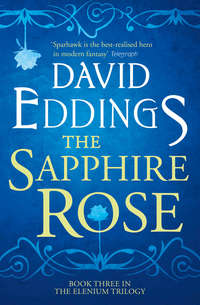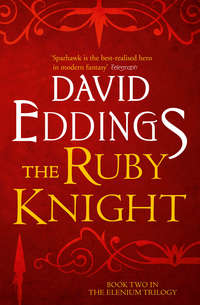
Полная версия
The Losers
Raphael began to unpack.
“J.D.’s the family patriarch,” Flood went on. “The whole damned bunch genuflects in his direction five times a day—except me, of course. I suppose I’ve never really forgiven him for tacking that ‘Junior’ on me, so I set out to be as unlike him as I could. He looks on that as a personal insult, so we don’t really get along. He started shipping me off to boarding schools as soon as I lost my baby teeth, though, so we only irritate each other on holidays. I tried a couple years at Pitt, but all that rah-rah bullshit got on my nerves. So I thought I’d saddle up old Paint and strike out for the wide wide west—What do you say to another drink?” He sprang up immediately and began mixing another batch of martinis.
Their conversation became general after that, and they both grew slightly drunk before they went to bed.
After Flood had turned out the light, he continued to talk, a steady flow of random, drowsy commentary on the day’s events. In time the pauses between his observations became longer as he hovered on the verge of sleep. Finally he turned over in bed. “Good night, Gabriel,” he murmured.
“Wrong archangel,” Raphael corrected. “Gabriel’s the other one—the trumpet player.”
“Did I call you Gabriel?” Flood’s voice had a strange, alert tension in it. “Stupid mistake. I must have had one martini too many.”
“It’s no big thing. Good night, Damon.” Once again, however, something in the very back of his mind seemed to be trying to warn Raphael. Flood’s inadvertent use of the name Gabriel seemed not to be just a slip of the tongue. There was a significance to it somehow—obscure, but important.
In the darkness, waiting for sleep and listening to Flood’s regular breathing from the other bed, Raphael considered his roommate. He had never before met anyone with that moneyed, eastern prep-school background, and so he had no real basis for judgment. The young men he had met before had all come from backgrounds similar to his own, and the open, easy camaraderie of the playing field and the locker room had not prepared him for the complexity of someone like Flood. On the whole, though, he found his roommate intriguing, and the surface sophistication of their first evening exhilirating. Perhaps in time Flood would relax, and they’d really get to know each other, but it was still much too early to know for sure.
iii
Raphael’s next few weeks were a revelation to him. Always before he had been at best a casual scholar. His mind was quick and retentive, and neither high school nor the community college he had attended had challenged him significantly. He had come to believe that, even as on the football field, what others found difficult would be easy for him. His performance in the classroom, like his performance on the field, had been more a reflection of natural talent than of hard work; everything had been very easy for Raphael. At Reed, however, it was not so. He quickly discovered that a cursory glance at assigned reading did not prepare him adequately for the often brutally cerebral exchanges of the classroom. Unlike his previous classmates, these students were not content merely to paraphrase the text or the remarks of the instructor, but rather applied to the material at hand techniques of reason and analysis Raphael had never encountered before. Amazingly, more often than not, the results of these reasonings were a direct challenge to the authority of the text or of the instructor. And, even more amazingly, these challenges were not viewed as the disruptions of troublemakers, but were actually encouraged. Disturbed and even embarrassed by his newfound inadequacy, Raphael began to apply himself to his studies.
“You’re turning into a grind,” Flood said one evening. Raphael pulled his eyes from the page he was reading. “Hmmm?”
“You study too much. I never see you without your face in some damned book.”
“That’s why we’re here, isn’t it?”
“Not hardly.” Flood threw one leg over the arm of his chair. “A gentleman does not get straight A’s. It’s unseemly. Haven’t you ever heard the old formula? ‘Three C’s and a D and keep your name out of the newspapers’?”
“No. I hadn’t heard that one.” Raphael’s mind was yearning back toward the book. “Besides, how would you know here? They won’t let us see our grades.” That was one of the peculiarities of what was called the “Reed experience.”
“Barbarous,” Flood snorted. “How the hell can we be expected to maintain a proper balance if they don’t let us see our grades? Do you realize that a man could screw up? Stumble into so many high grades that his reputation’s ruined for life?”
“I wouldn’t worry too much about that, Damon. I don’t think you’re in any danger.”
“Don’t get shitty.” Flood got up quickly. “Let’s go out and get drunk—see if we can get arrested or something.”
“I’ve got an early class tomorrow.” Raphael turned back to his book.
“Talk to me, goddammit!” Flood said irritably, snatching the book from Raphael’s hands. “What the hell are you reading, anyway?”
“Kierkegaard.” Raphael reached for his book.
“The Sickness unto Death,” Flood read. “Now there’s a cheery little tide. What class is this for?”
Raphael shrugged. “It came up in a discussion. I thought I ought to look into it.”
“You mean it’s not even required?” Flood demanded incredulously, tossing the book back. “That’s disgusting, Raphael, disgusting.”
“Different strokes,” Raphael said, finding his place again and settling back to his reading. Flood sat watching him, his black eyes as hard as agates.
And then there was the problem of the girl. She sat across the room from him in one of his afternoon classes, and Raphael found his eyes frequently drawn to her face. It was not that she was exceptionally beautiful, for she was not. Her face was slightly angular with strong bones, and she was quite tall with a coltish legginess that made her seem somehow very young. Her voice, however, was a deep, rich contralto with a vibrance, a quality, that stirred Raphael immeasurably each time she spoke. But she spoke infrequently. Sometimes a week would pass without a word from her. While others in the class talked endlessly, arguing, discussing, pushing themselves forward, she would sit quietly, taking occasional notes and now and then stirring restlessly as Raphael’s gaze became warmly obvious.
He began to try to challenge her—to force her to speak. He frequently said things he did not actually believe, hoping to lever her into discussion. He did not even care what she said, but merely yearned for the sound of that voice, that rich, vibrant sound that seemed somehow to plunge directly into the center of his being. She began, in time, to return his glances, but she still seldom spoke, and the infrequency of her speech left him frustrated—even angry with himself for his absurd fascination. Her name, he discovered, was Marilyn Hamilton, and she lived off campus. Beyond that, he was able to find out very little about her.
“You’re Taylor, aren’t you?” a large, bulky man with a huge black beard asked him one afternoon as he came out of the library.
“Right,” Raphael replied.
“Name’s Wallace Pierson.” The big man held out his hand. “I understand you’ve played a little football.”
“Some.” Raphael shifted his books so that he could shake the man’s hand.
“We’re—uh—trying to put together a team,” Pierson said, seeming almost apologetic. “Nothing very formal. Wondered if you might be interested.”
“Intramural?”
“No, not exactly.” Pierson laughed. “It’s just for the hell of it, really. You see, there’s a Quaker college across town—George Fox. They have a sort of a team—pretty low-key. They sent us an invitation. We thought it might be sort of interesting.” He fell in beside Raphael and they walked across the broad lawn toward the dormitories.
“I haven’t got the kind of time it takes for practice,” Raphael told him.
“Who has? We’re not really planning to make a big thing out of it-—just a few afternoons so that we can get familiar with each other—not embarrass ourselves too badly.”
“That’s not the way to win football games.”
“Win?” Pierson seemed startled. “Hell, Taylor, we weren’t planning to win—just play. Good God, man, you could get expelled for winning—overemphasis and all that jazz. We just thought it might be kind of interesting to play, that’s all.”
Raphael laughed. “That’s the Reed spirit.”
“Sure.” Pierson grinned. “If we can hold them to ten touchdowns, it’ll be a moral victory, won’t it?”
“I’ll think it over.”
“We’d appreciate it. We’re a little thin in the backfield. We thought we’d get together about four or so this afternoon—see if there are enough of us to make a team. Drop on down if you’d like.”
“When’s the game?”
“Friday.”
“Three days? You plan to put a team together in three days?” Pierson shrugged. “We’re not really very serious about it.” “I can see that. I’ll think it over.”
“Okay,” the bearded man said. “Maybe we’ll see you at four then.”
“Maybe.”
But of course he did play. The memory of so many afternoons was still strong, and he had, he finally admitted, missed the excitement, the challenge, the chance to hurl himself wholly into violent physical activity.
Pierson, despite his bulk, played quarterback, and the great black beard protruding from the face mask of his helmet made the whole affair seem ludicrous. On the day of the game their plays were at best rudimentary, and they lost ground quite steadily. The small cluster of students who had gathered to watch the game cheered ironically each time they were thrown for a loss.
“Hand it off to me,” Raphael suggested to Pierson in the huddle on their third series of plays when they were trailing 13-0. “If you try that keeper play one more time, that left tackle of theirs is going to scramble your brains for you.”
“Gladly,” Pierson agreed, puffing.
“Which way are you going?” one of the linemen asked Raphael.
“I haven’t decided yet,” Raphael said, and broke out of the huddle.
After the snap Pierson handed him the ball, and Raphael angled at the opposing line. He sidestepped a clumsy tackle, found a hole, and broke through. The afternoon sun was very bright, and his cleats dug satisfyingly into the turf. He reversed direction, outran two tacklers, and scored quite easily.
A thin cheer went up from the spectators.
In time his excellence even became embarrassing. He began to permit himself to be tackled simply to prevent the score from getting completely one-sided. More and more of the students drifted down to watch.
On the last play of the game, knowing that it was the last play and knowing that he would probably never play again, Raphael hurled himself up and intercepted an opponent’s pass deep in his own end zone. Then, simply for the joy of it, he ran directly into the clot of players massed at the goal line. Dodging, feinting, sidestepping with perfect coordination, he ran through the other team. Once past the line, he deliberately ran at each member of the backfield, giving all in turn a clear shot at him and evading them at the last instant.
The wind burned in his throat, and he felt the soaring exhilaration that came from the perfect functioning of his body. Then, after running the full length of the field and having offered himself to every member of the opposing team, he ran into the end zone, leaped high into the air, and slammed the ball down on the turf so violently that it bounced twenty feet straight up. When he came down, he fell onto his back, laughing for sheer joy.
iv
On the Saturday morning after the football game Raphael was stiff and sore. His body was out of condition, and his muscles reacted to the exertion and bruising contact of the game. He still felt good, though.
Flood was up early, which was unusual, since he normally slept late on weekends. “Come along, football hero,” he said to Raphael, “rise and shine.” His eyes glittered brightly.
Raphael groaned and rolled over in bed.
“Quickly, quickly,” Flood commanded, snapping his fingers.
“What’s got you all bright-eyed and bushy-tailed this morning?” Raphael demanded sourly.
“Today we go a-visiting,” Flood said exuberantly. “Today I carry the conquering hero to visit the queen.”
“Some other time.” Raphael laid one arm across his eyes. “I’m in no condition for queens today.”
“I wouldn’t touch that line with a ten-foot pole—or a nine-foot Hungarian either. You might as well get up. I’m not going to let you sleep away your day of triumph.”
“Shit!” Raphael threw off the covers.
“My God!” Flood recoiled from the sight of the huge bruises and welts on Raphael’s body. “You mean to tell me you let yourself get in that condition for fun?”
Raphael sat up and glanced at the bruises. “They’ll go away. What were you babbling about?”
“We go to visit the fair Isabel,” Flood declaimed, “whose hair is like the night, whose skin is like milk, and whose gazongas come way out to here.” He gestured exaggeratedly in front of his chest. “She’s an old schoolmate of my aunt’s, a fallen woman, cast out by her family, living in shame and obscurity by the shores of scenic Lake Oswego some miles to the south. She and I are kindred spirits, since both of us offend our families by our very existence. She’s invited us to spend the weekend, so up, my archangel. Put on your wings and halo, and I will deliver you into the hands of the temptress.”
“Isn’t it a little early for all the bullshit?” Raphael asked, climbing stiffly to his feet and picking up his towel. “I’m going to hit the showers.” He padded out of the room and down the hall to the bathroom.
After a hot shower his sore muscles felt better, and he was in a better humor as he dressed. There was no withstanding Flood when he set his mind to something, and finally Raphael gave in. Twenty minutes later they were packed and southbound on the freeway in Flood’s small, fast, red Triumph.
“Just exactly who is this lady we’re visiting?” Raphael asked.
“I told you,” Flood replied.
“This time why don’t you clear away all the underbrush and give me something coherent.”
“The lady’s name is Isabel Drake. She went to school with my aunt, which makes her practically a member of the family.”
“I don’t quite follow that, but let it pass.”
“We have very extended families in Grosse Pointe.”
“Okay.”
“Helps us avoid contact with the riffraff.” “All right.”
“Avoiding contact with the riffraff is a major concern in Grosse Pointe.”
“All right, I said.” “Do I digress?”
“Of course you do, but I’m used to that. All right. Miss—Mrs.—Drake is a distant friend of your family’s, a lady of middle years who happens to live in the area, and this is by way of a courtesy call, right?”
Flood laughed. “She’ll love that,” he hooted. “Mrs. Drake—definitely Mrs.—made, when she was quite young, an excellent marriage and an even better divorce. She’s a lady of means now. The aunt I referred to is my father’s youngest sister, so Isabel is maybe thirty at most—hardly what you’d call ‘of middle years.’ And as far as ‘courtesy calls’ go, you’ll soon discover that the term is wildly inappropriate. Isabel Drake is probably who they had in mind when they invented the word ‘fascinating.’ ”
“Why did you call her a fallen woman?”
“That’s a tale of dark passion and illicit lust, Raphael, hardly suitable for your tender ears.”
“Try me. If there are subjects I shouldn’t talk about, I’d like to know in advance.”
“Besides which, you’re panting to hear the details, right?” Flood smirked.
“Pant, pant,” Raphael said dryly. “Get on with it, Damon. You’re going to tell me about it anyway; nothing could stop you. I could have your mouth bricked up, and you’d still tell me.”
Flood laughed. “All right, Raphael. Shortly after her divorce, Isabel conceived a passion for the husband of one of her cousins, a vapid, colorless girl of no lasting significance. There was a flaming affair which quite rapidly approached the status of a public scandal. The man in question was also of no lasting significance—some semipresentable shithead the cousin’s family had bought for her. Anyhow, there were all the usual lurid developments—gossip, people falling over themselves to tell the poor cousin what Isabel was up to. She attempted suicide, of course.”
“You’re kidding.”
“Not a bit of it. Sleeping pills, the tragic suicide note, all of it. Anyhow, there was a separation, and the poor klutz informed Isabel that he was ready to divorce the cousin and ‘make an honest woman’ of her. Isabel, who was getting bored with the whole thing at that point, laughed in his face. She was not about to give up that alimony for anybody, much less some cretin who couldn’t function outside the bedroom. He got huffy about it all and stormed out, but when he tried to go back to the cousin, she told him to buzz off. He took to drinking and made a special point of telling everyone in all the bars about Isabel’s bedroom habits—in great detail. In rime the rest of the family hinted around that they’d all be a lot happier if she’d take up residence a long, long way from Grosse Pointe, and finally she did.”
“Don’t the rich have anything better to do?”
“That’s the whole point of being rich,” Flood replied, turning off the freeway. “It leaves you free to pursue diversions other than money.”
“You know, I think you made all that up, Damon. I think you’re putting me on.”
“Would I put you on?” Flood laughed. “If you thought I’d swallow it, yes.”
The home of Isabel Drake was a chalet-style house set in a grove of fir trees near the shores of the lake. It was about ten-thirty when Flood’s small red sports car stopped on the curving gravel drive in front of the house, and morning sun filtered down through the trees with that overripe golden quality that, more than anything, speaks of autumn.
Flood bounced from the car with unusual energy, went up the wooden steps to the wide porch that stretched across the front of the house, and rang the bell. “Come along, Raphael,” he said over his shoulder.
Somewhat painfully, his muscles stiffened again from the ride, Raphael climbed from the car and started up the steps to the porch.
The docr opened, and a small woman looked out inquiringly. She was short, perhaps just over five feet tall, and she wore jeans and a loose-fitting cambric shirt of the kind Raphael had seen mill workers back home wear. Her hair was quite dark and caught at the back of her neck by a red bandanna. The skin of her face and throat was very white, and her figure under the loose shirt was full. She had a smudge of pale green paint on one cheek. “Junior,” she said in an exasperated tone. Her voice was rich and melodious. “You said noon.”
“Sorry, ‘Bel. We got away early.” He grinned down at her.
“I’m a mess,” she protested, glancing down at the front of her shirt. She was holding two long, pencillike paintbrushes in her right hand. “You always do this to me, Junior.”
“This way we get to see the real you, ‘Bel.” Flood’s grin was slightly malicious. “Let me present the Archangel Raphael,” he said, turning and beckoning.
Isabel Drake’s eyes widened, and she stared directly at Flood as if he had just said something totally unbelievable. Then she turned and looked at Raphael. Very clearly he could see a kind of stunned recognition cross her face. Her eyes seemed to cloud for a moment, and she looked as if she were about to say something. Then she shook her head slightly, and her face became a polite mask.
“Mrs. Drake,” Raphael said rather formally, inclining his head in a sort of incipient bow.
“Please,” she replied, “just ‘Bel.” She smiled up at him. Her eyes were large, and her lips sensual. “There’s no point in being formal, since Junior arranged for you to catch me in my work clothes. Is it really Raphael?”
Raphael made a face. “My mother’s idea of a joke. I’ll answer to Rafe if it’d make you more comfortable.”
“God no,” she said. “I love it. Raphael—it’s so musical.” She switched the paintbrushes and offered her hand. Raphael took it.
“Oh dear,” she said. “The paint. I completely forgot.”
Raphael looked at his hand and laughed at the smudges on his palm.
“It’s only watercolor, but I am sorry.” “It’s nothing.”
“Junior,” she said sharply, “I positively hate you for this.”
Flood, who had been watching the two of them intently, laughed sardonically.
“Come and see my little house,” she invited them. “Then I’ll get cleaned up and change.”
The interior of the chalet smelled faintly of the woman’s perfume. The walls of the living room were paneled with walnut, and there were dark, open beams at ceiling height, forming a heavy latticework overhead above which open space soared to the peaked roof. The furniture was of dark, waxed wood and leather, very masculine, which somehow seemed to accentuate Mrs. Drake’s femininity. The floor was also dark, waxed wood, and fur throw rugs lay here and there, highlighting major points in the room. The morning sun streamed through a window high in the wall above the beams, catching a heavy crystal service on a buffet in the dining area beyond the couch. The gleaming cut glass filled the room with a golden light that seemed somehow artificial, an unreal glow that left Raphael bemused, almost powerless. Here and there on the dark walls muted watercolors added that touch of something indefinable that spoke of class.
“Pretty fancy, ‘Bel.” Flood looked around approvingly.
“It’s comfortable.” She shrugged. “The kitchen’s through here.” She led them into a cheery kitchen with a round table near the broad window that faced a wooden deck that overlooked the sparkling waters of the lake. An easel was set up on the deck with a partially finished watercolor resting on it.
Raphael looked out at the painting and recognized its similarity to the ones hanging in the living room. “You do your own, I see,” he said, pointing.
“It passes the time.” She said it deprecatingly, but he could see that she was rather proud of her efforts.
“Say,” Flood said, stepping out onto the deck, “that’s really pretty good, ‘Bel. When did you get into this? I thought dance was your thing.”
Raphael and Isabel went out onto the deck and stood looking at the watercolor. She laughed, her voice rich. “That was a long time ago, Junior. I found out that I’m really too lazy for all the practice, and I’m getting a little hippy for it. Male dancers are quite small, and it got to be embarrassing the way their eyes bulged during the lifts.” She smiled at Raphael. “Good grief, Raphael,” she said, her eyes widening, “what on earth did you do to your arm?” She pointed at the large, dark bruise on his upper bicep, a bruise exposed by his short-sleeved shirt.
“The Angel here is our star athlete,” Flood told her. “Yesterday afternoon he single-handedly destroyed an opposing football team.”
“Really?” She sounded interested.
“He’s exaggerating.” Raphael was slightly embarrassed. “There were ten other people out there, too. I just got lucky a few times.”
“That looks dreadfully sore.” She touched the bruise lightly.
“You should see his chest and stomach.” Flood shuddered. “He’s a major disaster area.”
“They’ll fade.” Raphael tried to shrug it off. “I heal fairly fast.” He looked out over the lake.
“Come along now, you two,” Isabel ordered. “I’ll show you where the bar is, and then I have to get cleaned up and change.” She led them back through the kitchen into the dining room. She pointed out the small portable bar to Flood and then went upstairs. A few minutes later they heard a shower start running.







